2019 was a pretty good year in games for me! I played a few really great games that pushed my standards for how good games can be. Here are my informal reviews for them.
Sadly, due to some health problems I didn’t manage to play much in the final quarter of the year, and here’s hoping 2020 sees more games.
I decided to leave out reviews for games I didn’t enjoy, except for one game which you’ll see why.
The games are listed roughly in ascending order of impact they had on me, and grouped by series when such. These are simply my opinions so try to not take it personally if you don’t relate to them. =v=
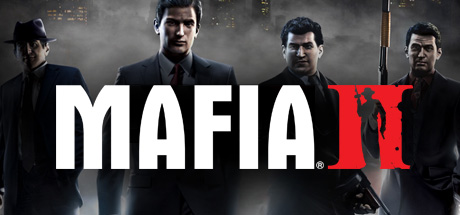
Mafia II (2010) – Personal score 7/10
I was expecting this game to be a lower budget GTA with an Italian mobster paint over it but I was pleasantly surprised to find out it has much more to offer. You do still have your standard GTA open world missions involving lots of driving and shooting people, but it does some original tricks I hadn’t seen in a game like this before. Instead of having to do small time criminal work to build up reputation before you can do big gigs, in Mafia II you’re thrown very quickly into the thick of things and the tension stays high throughout. The mechanical complexity and strategy never gets demanding, but it’s responsive and competent and I had a great time with it. And the accents are great. It’s an overall nice and condensed experience that only takes around 10 hours to finish.
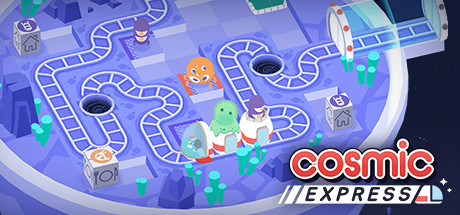
Cosmic Express (2017)- Personal score 7.5/10
Very elegant puzzle game about building train tracks to send residents to their homes inside little space stations. There’s lots of terrific puzzles, and it’s definitely a game you should play if you enjoy puzzle games, but unfortunately the experience doesn’t stay consistent throughout. As levels get harder the possibility space grows unwieldy and many of the solutions feel obfuscated and like they’re more about trial and error than puzzle solving. Too many levels without a-ha moments. This is from the same developer as A Good Snowman Is Hard To Build, and I feel like that game was more tight in that sense.

Pipe Push Paradise (2018)- Personal score 8/10
Terrific sokoban puzzle game about forming pipe structures. Every level has a pipe that spews water, a pipe where that water is supposed to go, and you push and rearrange the pipe pieces strewn about to create a flow of water. The levels are very well designed and do a great job of exploring the mechanics. It’s no Stephen’s Sausage Roll, but it’s the most enjoyable sokoban style game I’ve played since.
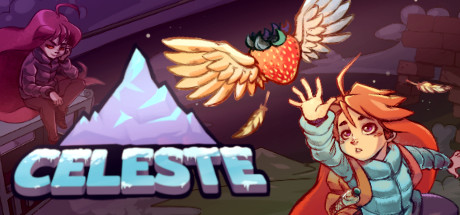
Celeste (2018)- Personal score 8.5/10
Celeste is a very competent 2D platformer with little fluff and lots of polish. The mechanics have a decent degree of complexity and the level design never feels hard or unfair enough as to be frustrating. However, the level design disincentivizes backtracking by sectioning off previous areas, making collectible completion an unappealing prospect. I also feel like the mechanics are most fun for casual gameplay / for the duration of the story levels, and don’t hold up to scrutiny when the difficulty slider is turned all the way up, and my suspicions were confirmed when playing through the harder unlockable levels. The over-reliance on gimmicks and wait cycles feels very frustrating and like you lack control over movement. It’s nothing close to a Dustforce, but may be the most fun platformer since.
There’s some story cutscenes in a few places and it’s decent for what it is but it’s a bit too on the nose with its themes of depression and anxiety and I feel like it doesn’t reach anything particularly deep.
Still, overall great game.
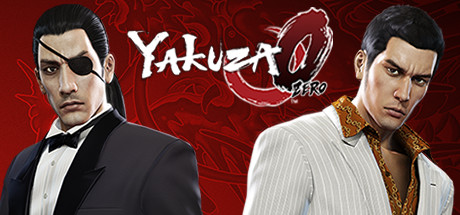
Yakuza 0 (2015)- Personal score 8.5/10
Prior to this I had virtually no knowledge of what the series Yakuza was. I think I’d seen a quick video snippet of someone going into a convenience store (ingame) and that stuck in my head as something that seemed cool – I love this sort of real life roleplay in games – but I didn’t know anything more past that and some people saying it was good. But man, I wasn’t prepared for just how good it is!
First of all, the writing is superb. On paper it seems like it could be cheesy. I mean, how smart can a story about a bunch of hooligans be? As it turns out, it can be amazing. The plot revolves around a few gangster factions that are fighting to acquire this small plot of land that would allow them to get a vice grip on the town’s economy, and our protagonist is caught in the middle of it. Everyone is so well written and the plot is full of tension and surprises. I really don’t want to go into any spoilers, but hopefully you’ll take me at my word that the script in this game is top tier and give it a shot. It’s easily top5 writing I’ve seen in videogames.
Then there’s gameplay. This game is curious in that it’s partially a minigame collection, which again also sounds bad on paper, but turns out is amazing due to its execution. You know how in videogames whenever a character does something that’s not walking or battling it just tells you the character did that activity and leaves you to imagine it in your head? Well, in Yakuza you get to actually play a lot of those activities. Going to a karaoke bar? You can sing karaoke and invite acquaintances to sing with you. Going to a regular bar? You can play pool, darts, and drink (not just buy the drinks but drink them there and talk with the bartender). Going to the arcade? You can play UFO catchers and all the arcade games you see on the machines. Wanna go fishing? You can do that. You wanna play some board games? There’s a bunch of homeless people waiting to take your money. You can play with pocket cars, dance at the disco, bet on catfights, and the list goes on and on. And the minigames are usually complex enough that you can make goals around them and make them satisfying challenges. It can’t be understated how much all this variety adds to the game. Of the 95 hours I logged, only 15 or so I’d say comprised of reused missions and content. The sheer amount of variety is staggering.
Still, the game has its dips. Combat, despite its extensive ability tree, is not complex or varied enough to justify the frequency and length of its usage. There’s a battle or two every time you go from A to B, and at some point you’re just doing the same things over and over. And bosses kind of cheat the game mechanics, breaking out of stuns at incomprehensible times and incentivizing very cheesy boring play in harder difficulties. Though I don’t want to paint the wrong picture, the combat is still pretty decent and works well for the kind of game it is.
Overall amazing game that more people should be talking about.
(Bear with me on this next one, there’s a good reason I’m talking about it despite the negative score. :p)
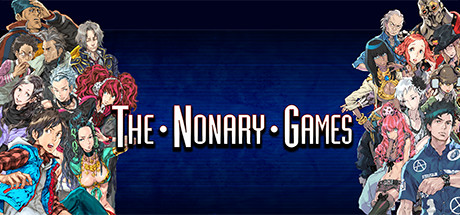
999: 9 hours, 9 persons, 9 doors (2009)- Personal score 3/10
I was surprised at how bad this game is, given how on paper it’s a mix of a bunch of things I like. There’s puzzles, check. There’s locked room mysteries, check. There is a killing game thing going on, check. But the execution is so poor in so many ways.
It has abysmal writing where everyone is an imbecile and no one acts or talks the way people do. They do the stupidest things and gloss over obvious stuff, and sometimes they flip from being idiots to being total savants and leave the reader in the dark with their logic leaps, all in the service of contrived plot progression.
It also features poor translation – not in the sense that it’s too literal, as they actualized didn’t shy away from localizing it and I like that – but the resulting script seems like it never saw an editor, and it reads very awkward.
Then, the puzzles. One of the biggest problems with them is that they have nothing to do with the plot. You get into a locked room and you’re trying to get out, but the puzzles are about totally random things that have nothing to do with the mystery of the story. Not only are they totally unremarkable, but they make the story feel slower and more disconnected.
The story tries to amend this by periodically having a character do a random info dump about something, but it’s always so drawn out and uninteresting and out of place, and with the aforementioned poor writing it makes it torturous to play through.
Another problem worth mentioning is how poor the game is at conveying its geography. Given you’re trying to exit an enclosed space, and it’s plot critical to know where each group of people is at any given point in time, you should have a good idea of what it looks like and how the characters are moving through it, but you never do, and it feels very disorienting. There is no map menu that you can conveniently access and the game does a bad job of conveying where the characters are at.
Geography inside escape rooms is also wonky. They function like a point and click game, and you click buttons on the left and right sides of the screen to snap to different fixed viewpoints in that room. This shouldn’t be a problem normally, but the layout of the rooms gets so convoluted, and the snapping points are so strange, that sometimes you click to go left/right and you find yourself in a place that doesn’t even feel like it’s in the same room you were in before. 999 is originally a DS port and this was one of the constraints of the console that they had to work around, but the designers did a poor job of designing the rooms with regards to this limitation.
And yeah, it’s just kind of a terrible game. Despite my friends urging me to continue, I had trouble imagining how the sequel could amend this game’s problems, given how deep they run.
Virtue’s Last Reward (2012) – Personal score 9/10
In a bizarre twist of fate, the sequel to 999 ended up being one of the greatest games I’ve ever played!
Right off the bat, the script is the total opposite of 999 – it’s downright excellent. So much will happen with simple conversations. Just the characters taking a moment to stop and think and talk to each other about what’s going on. It never resorts to external events or contrived nonsense to do exposition and story progression. It’s always logical and natural and makes for an amazingly enjoyable read. This is remarkable on its own, but it’s mind-blowing when you consider it’s a sequel to 999. The only parts where the writing dips are during bad ends, where characters act with unnatural aggression toward the protagonist, but fortunately those are very short and have little impact on the experience.
The plot is consistently surprising – shocking, even – with new unforeseen twists dropping on regular intervals and flipping everything you thought you knew upside down. It’s on par with the best of games like the Infinity series (Ever17, Remember11) and Root Double. The story also benefits greatly from having very few ties with 999. The cast is virtually all new, in an all new situation, and the first game’s events only come into play on some of the end game twists.
Gameplay was immensely improved too. You have way better geographical awareness both in and out of rooms. Puzzle rooms are more contextual and better designed overall, and they never repeat a room (in 999 you were sometimes forced to redo rooms you’d done before). One really cool piece of flair is how every puzzle room has its own completely distinct piece of background music, and they’re all banging tracks. It makes them feel so much more fresh and unique.
And that’s kind of it. There’s not much more I could say without spoiling, and is this one of those games that are best experienced the less you know about it.
If you enjoy mystery stories, puzzles, and good writing, then you must play this. It’s worth it to stick it out through 999 to play the masterpiece that is VLR.
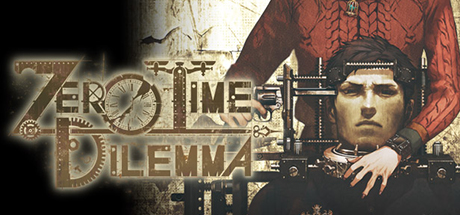
Zero Time Dilemma (2016)- Personal score 7.5/10
The final game in the Zero Escape / Nonary trilogy. Not content with the tech they had in VLR, the team decided to ditch the visual novel style conversation systems and emulate a full motion cutscene look. This was sadly a bit more than the team could chew and resulted in worse cutscenes than VLR. See, visual novel conversation systems work great for filling in the gaps. You have these few really high quality illustrations that convey a handful of expressions very well, and your brain fills in the rest, like how the characters are gesticulating and moving around the scene. When you try to make it full motion you have to fill in all those gaps, or you get a stiff uncanny look, and that is exactly what happened here. Even the best scenes have their impact diminished by this, and it’s a shame given they already had a better system in the previous game. Their ambition is laudable, but they overestimated their capability to make it work.
The writing itself is also not as good as VLR, with a few not great characters, but it’s still pretty decent, and it does a surprisingly great job of concluding the story. It manages to tie all the loose ends in a way that I didn’t think was possible. It’s absolutely worth playing to see the finale!
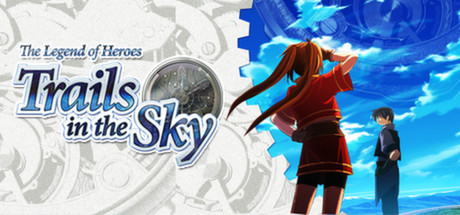
The Legend of Heroes: Trails In The Sky (2011)- Personal score 8/10
If you’ve ever played a Falcon game – any game in the Ys series – you’ll be familiar with the breed of game this is. They specialize in crafting these somewhat generic but very heartfelt and grand fantasy RPG stories, with solid characters and writing, spectacular localization, and hack and slash combat.
Gameplay wise the Trails In The Sky series differs from the Ys series mostly in that combat is turn based instead of real time. Combat plays like a grid based strategy RPG with turn indicators. There’s melee attacks and magic spells and special skills and items and status effects. The usual. It all works pretty well, though there are some key flaws. One of them is the uneven difficulty and how it tries to counterbalance it with a dynamic difficulty system. The way it works is if you die in battle you have a choice to retry the battle from the beginning, and if you choose to do so the battle will restart but the enemies will be weaker this time. They’ll have less HP and do less damage and generally be much easier to defeat, so whenever you come across a battle that’s particularly difficult, you can cheese it by dying and retrying until you can beat it. As you might imagine this doesn’t feel very rewarding sometimes, but it’s the lesser of two evils. Another issue with combat is the game doesn’t allow you to over-level. The exp you gain from battles is not static, and instead depends on your level. Say there’s 2 party members and one is 5 levels higher than the other, the lower level character will receive a ton more exp than the higher level guy. This makes it easy to get unused party members back up to speed, which is great, but as you get closer to the level the game expects you to be at that point in the story you’ll start gaining less and less exp, until it gives virtually no exp at all. So making yourself stronger is not a viable way to defeat battles, and in tougher battles you have little incentive to not abuse the retry system. An option to retry without lowering difficulty would be great, as well as better battle balance, but overall battle is still fairly interesting and challenging.
Trails In The Sky does this thing that I’ve never seen in an RPG before. Usually in RPGs you start out with a small party of characters and it keeps growing and growing as the story goes, and it’s very rare you ever lose a character. With Trails In The Sky, only 2 of the characters are fixed, and the other characters in your party are always different depending on where in the story you are. This seems like it could be a dicey design decision if you think about the ramifications, like what happens to the equipment those characters had, and how maybe some players might be upset that a character they liked is no longer playable, or how it’s not very cost effective to create a whole character just to fill in for a limited amount of time, but I found that I really liked the effect this had. This frequent variability in party members made me have to adapt people’s roles and devise new strategies for old scenarios all the time, and that felt very refreshing. It never let gameplay fall into a repetitive loop. It also has the added bonus of making the story less predictable, as characters are afforded less plot armor.
More on the story, I was surprised at how invested I got despite it having a grand political plot. Usually that’s a surefire way to make me zonk out completely, but Trails In The Sky starts from such a small scale and gives you time to learn and care about all the characters involved (and they’re all likable human characters) that when the pieces start moving you can actually understand what’s going on and relate to everyone’s plight. It has nothing hokey like senselessly evil villains or contrived events to move the plot along. It’s just solid writing all throughout. It feels like what the Final Fantasy games try to be but consistently fail horribly at.
Despite not being my highest rated game of the year, it probably made the biggest impression me. The JRPG genre, and even outside of RPGs, just videogame writing in general is usually of such low quality that finding something well written is rare, but finding an epic of this scale at this superb level of writing is something I have never seen before. I loved this game.
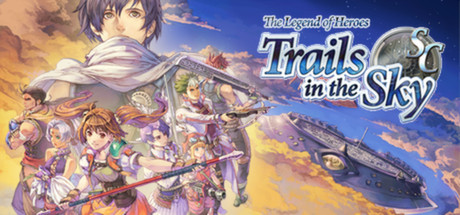
The Legend of Heroes: Trails In The Sky SC (2015) – Personal score 8/10
The second chapter in the Trails In The Sky trilogy, it picks up immediately after the climax of the first game. Since they were released as separate standalone games there were some improvements and changes made. Music got a considerable upgrade, with richer tracks and some good remixes of old songs. Combat functions essentially the same but with a few more spells and moves available. Characters got new fancy costumes.
Unfortunately, that thing with the first game where party members changed frequently is no longer a thing here. Now at the start of every major story beat the game asks you to choose who you want to be in your party, and you’re able to swap party members around at any time by just going to any of the guilds located in every town. It made combat a bit less interesting than in the first game, which is unfortunate, but it remains a fairly decent combat system overall.
On the other hand, something that started to flourish nicely with this game is the side story content, and world building in general. Every time a story beat happens every NPC that you can talk to in that town/area has new dialogue. Store clerks, random people on the street, travelers, your own party mates, everyone. Everyone gets a ton of new dialogue. The scale of this is mind-boggling, and when you consider how well written and involved the storylines are it’s incredible. On top of that, everyone’s stories evolve naturally alongside the protagonists’. At this point it’s been roughly an ingame year since the story has started, and it’s very interesting to see how some side stories have progressed.
Here’s an anecdote of one of the many stories going on: In the starter town there’s a small magic orb store run by an old man and his son. The son is studying under his tutelage and intending to take over the business when his father retires. In the start of the second game when we swing by the technology capital we encounter the son there. He has travelled there to enroll in an apprenticeship, and then later on he returns back to his home town.
Another example: When you revisit your small home town later in the game you find that it’s being attacked by some mysterious entity. The town is surrounded by thick fog and enemies have become much more aggressive, effectively imprisoning the townsfolk. The town guild sends a call to the military for backup, and a group of guards arrives the next day to keep guard over the town. Now, the interesting thing is that the guards that come aren’t just some random faceless men, they’re people you’ve met before. You’ve been to their houses, you’ve talked to their families, and one of them you might have even done a quest for before. This was such a cool thing for me. Because like, *of course*, if you’ve been to every town and took the effort to go around to talk to everyone then you should know everyone. It’s so obvious. Yet I’ve never seen a game do it like this before. It’s not unheard of to bump into secondary characters along your adventure, but these aren’t even secondary characters. They’re just random NPCs. But Falcom made every NPC – and its world at large – so fleshed out that this becomes possible.
Falcom’s obsession with believable world building goes further than this, down to all the little details*. Like, everyone has a house. Everyone has a bed. People have kitchens and book cases and occupations and problems. Because of course they do. Yet it’s very rare you see this in videogames.
This sort of world building is sometimes labeled as shandification, a term coined by MrBTongue in his “The Shandification of Fallout” video. This shandification, coupled with the excellent writing, makes the game effectively evergreen. Even after 100 hours I didn’t feel like I wanted the story to end. I wanted to keep going places and keep talking to people and just keep experiencing this world.
There’s a bunch of other cool things about Trails In The Sky that I haven’t given much lip service to, but that round off the game beautifully. For example, side quests. The side quests in this game are probably the best out of any game I’ve played. Not only are they backed up by this spectacular writing, but they’re so varied and smart. It’s never just about going and killing 50 rabbits, or following an onscreen arrow to some random place and getting a shiny jingle at the end. The game respects your intelligence and has you do more interesting things, and it’s intoxicating. I was obsessed with doing every single quest and would be bummed out when I accidentally advanced the story too far and made a quest incompletable.
This game was on course to become a solid GOTY for me, but sadly the it took a big dip in quality in its final chapter. The final area of the story is uncharacteristically underdeveloped and unrealistic, and the villains’ behavior stretch believability too much, and it leaves a sour note at the end of an otherwise spectacular epic. It’s left me a bit weary about jumping into the final arc of the game, but I’m super excited about re-experiencing all the other things it does amazingly.
* The only major world building detail that’s left out is, weirdly, bathrooms. I don’t know why they chose to do this, but there’s no bathrooms to be found anywhere in the game. It would be a small thing normally, but as I mentioned, these details make the world. And the fact that you can imagine everything about someone’s life except what they do when they need to poop really breaks the illusion. It’s a shame, and I hope subsequent games correct this decision.





